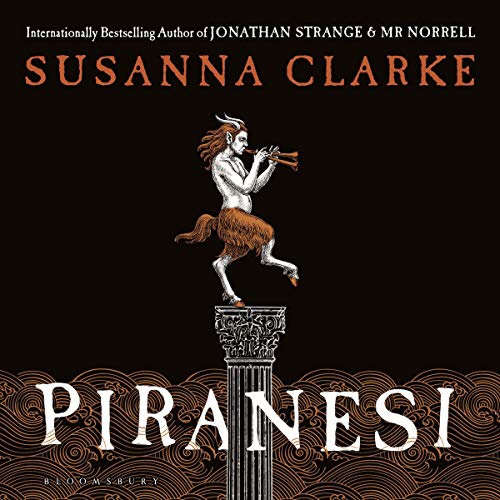In Piranesi, we follow the titular character who lives in a seemingly infinite house—vast rooms and labyrinthine corridors—that is, at the very least, large enough to contain an entire ocean that can flood hallways in an instant. But how did Piranesi get there? We quickly get the sense that something isn’t quite right as Piranesi starts making discoveries and asking questions about the nature of “the House.”
I don’t read much speculative or surrealist fiction, so I don’t really have a lot to directly compare this book to or judge it against, but I found Piranesi to be a beautiful and engaging read. It certainly made me want to read more in this genre. It is full of striking images and shows a true command of writing as a craft.
As I was reading, the feeling of dread that pervades the book really stood out to me. I had similar feelings while reading Jonathan Strange and Mr. Norrell (Susanna Clarke’s first and only other full length novel). It’s a strange compliment, but Clarke can make me feel unsettled and haunted in a way that no other writer has. It’s not the same kind of dread you would get from a horror novel. It is simply the queasy feeling that comes from knowing that something is off kilter—even something malicious—but not having all the details. This unsettled feeling is threaded through the story, right alongside vivid characters, beautiful writing, and haunting images.
This novel seems very interested in the idea of loss, just like Jonathan Strange and Mr. Norrell. In many ways, Jonathan Strange and Mr. Norrell, is a story about trying to understand loss: the loss of magic, and loss through death. In Piranesi, the same idea of loss through death is explored. Piranesi, at one point has discovered the remains of thirteen people, and we see several times the lengths he goes to to respect those remains and treat them with dignity and care, one of those heartbreaking images that Clarke does so well. Even aside from this, I saw these same themes everywhere. Loss of memory, loss of innocence, being lost in both a metaphorical and literal sense.
On the whole, I found this book eminently readable and engaging. I would definitely recommend it to literary fiction readers, and those interested in exploring speculative fiction.
